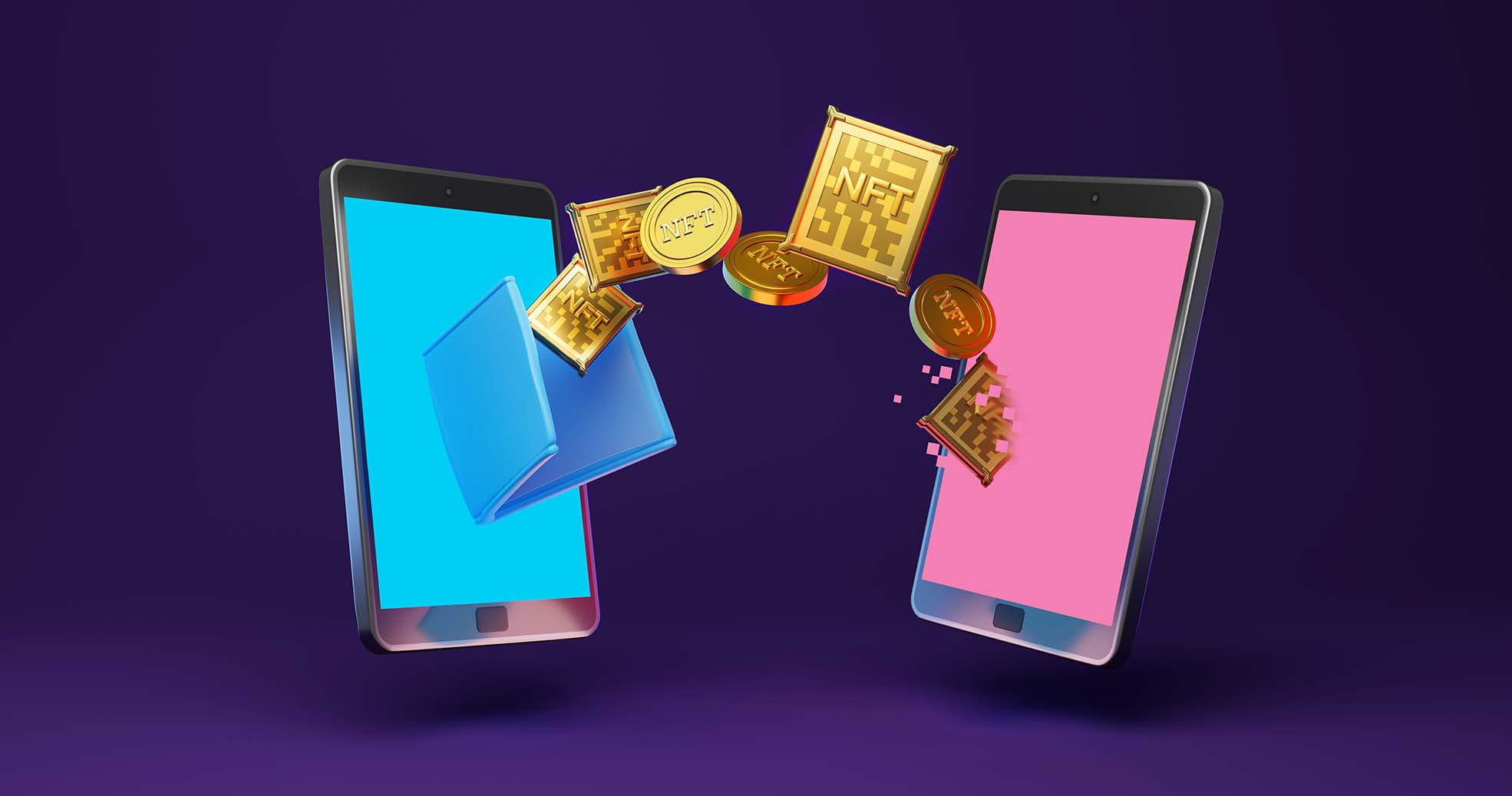by Jake Wengroff
Cryptocurrency investors are quite familiar with the concept of a wallet — that’s the platform that enables them to store their crypto assets. But a wallet for the purchase of non-fungible tokens (NFTs) is a bit more of a complicated topic.
This is because different blockchains require different wallets. Additionally, NFT project creators usually select only one wallet option to work with their site because they normally do not have the development resources to accommodate multiple wallets (similar to apps that are only available on Apple’s App Store that are not also available in Google Play).
Given this, what wallet features should NFT buyers be aware of when deciding to purchase NFT assets in a marketplace?
Bitcoin vs. Ethereum Blockchains
The blockchain provides certification for uniqueness and non-transferability of the concerned digital asset. As such, NFTs have the value of uniqueness, which usually leads to their higher valuations.
Buyers of NFTs cannot use the Bitcoin blockchain — or any wallets associated with the Bitcoin blockchain — because it was built prior to the concept of smart contracts, which is the basis of NFTs. Instead, the Ethereum blockchain is considered the “original” NFT blockchain because its creators also created the concept of NFTs. As such, the Ethereum blockchain has the most NFT projects built on it and, subsequently, the most wallets associated with it as well.
Again, NFT projects usually select only one wallet provider to host the project’s NFTs. This is because new wallets would require additional development time, and NFT developers would rather spend their time developing the project rather than developing a new wallet.
If an NFT buyer holds an NFT in a wallet, the buyer can usually transfer that NFT to any other Ethereum-based wallet. However, once the buyer visits the project’s site again without the NFT in the specific wallet that works with that project, the NFT will not show in the project’s website.
Other Blockchains and Other Wallets
Flow, WAX and Algorand are the names of other blockchains that have been developed primarily to serve the developers of new NFT projects. Why wouldn’t NFT developers just develop on the original NFT blockchain Ethereum? The answer is that newer blockchains or ledgers have less data and can handle transactions faster than on Ethereum. Also, these new blockchains are optimized for NFTs.
As more projects are built on these newer blockchains, NFT buyers can expect to see more wallets pop up as well. Some of these blockchains create wallets in which any NFTs must stay, meaning that the NFTs within them cannot be transferred to other wallets. For example, one of the biggest projects on the Flow blockchain is NBA Top Shot. Buyers of NBA Top Shot NFTs do not have the ability to transfer them to any Ethereum-based wallets because it is a Flow NFT.
Active buyers of NFTs, especially buyers of smaller, emerging properties built on new blockchains and therefore stored in new wallets, might find themselves holding assets in a multitude of wallets. Management of these multiple NFTs in multiple wallets can become confusing. However, with values of NFTs increasing, it might be worth it for many investors to accept the confusion and find strategies to handle their multiple wallets.
Peace of Mind as You Acquire NFTs
The world of NFTs continues to evolve, as the number of projects increases and as buyer interest intensifies, and transferring NFTs between wallets is fraught with risk. While it’s difficult for the blockchain or ledger to be hacked, these new wallets — especially if they do not have all of the development resources needed to ensure tight security — are subject to fraud, misuse or compromise. Once a cybercriminal obtains the NFT’s private key, it can be very difficult to prove who originally owned that asset.
The industry needs market-driven solutions that can keep up with the ever-complex marketplace of crypto assets. TransitNet is creating the industry’s first third-party title registry that demonstrates proof of ownership of crypto assets, to add a layer of protection for investors in digital currencies, NFTs, and other crypto assets.
Join the forefront of the new crypto infrastructure.
Request an exclusive registration for TransitNet’s title registry when it launches today.
Jake Wengroff writes about technology and financial services. A former technology reporter for CBS Radio, Jake covers such topics as security, mobility, e-commerce and the Internet of Things.
Source
Medium.com – Why Do I Need So Many EFT Wallets?
